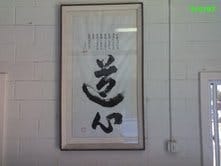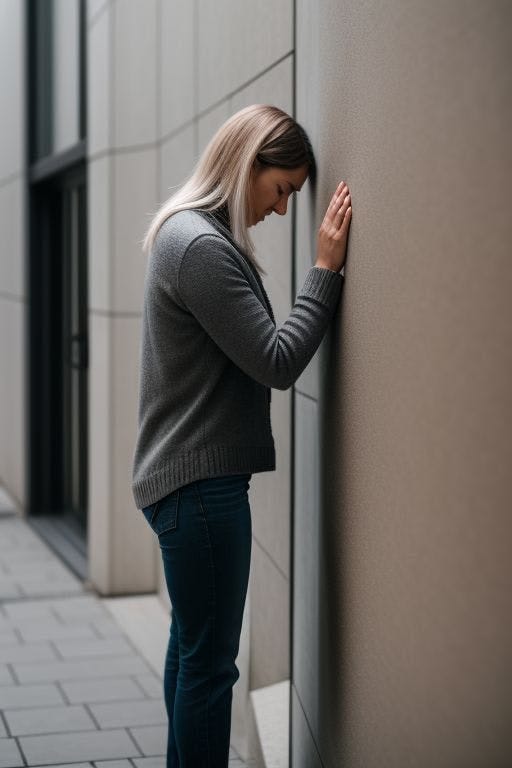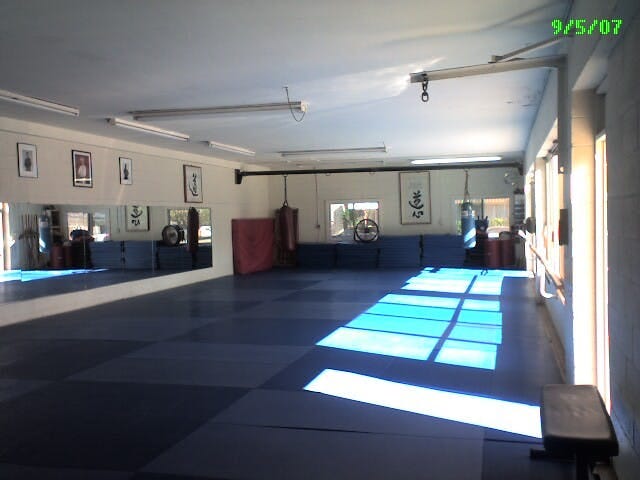The Moment Fear Takes Over
I want to talk to you about a moment we’ve all experienced—the moment fear takes over, and we lose control.
We’ve all had that one experience where everything goes wrong, and we’re left asking ourselves, “What the hell just happened?”
The other day, I found myself in one of those moments on the BJJ mat, and it was a wake-up call.
But more than that, it was a reminder that growth and self-discovery often come from our darkest moments, the ones we’d rather forget.
I was drilling a specific defense against getting mounted, working with a purple belt I’ve rolled with a few times before.
We’ve got a good rapport; he’s a nice guy, not the type to push things too far.
Still, something was off that day.
Maybe it was me, maybe it was him, or maybe it was just one of those days when the universe decides to test you.
I’ve always been clear about why I train in BJJ.
It’s for fun, exercise, and maybe a little self-improvement.
I’m not trying to be the next badass fighter.
I’ve been down that road in Hapkido decades ago.
I mean who the hell am I kidding.
I’m a 58yo 120# retired electrician, I’m doing BJJ to stave off dementia and old age, not be a UFC fighter, LMAO!
 |
But there’s a part of me, a side I call my black wolf—Fenrir—that comes out when I feel threatened and not safe.
The problem is, when Fenrir wakes up, I’m not always in control, I get hijacked by the amygdala version of myself – the fight, flight, freeze instinct.
And more often than I like to admit, it’s the fight that comes out.
So, we’re drilling, and it’s the purple belt’s turn to attack.
He mounts me and traps my arms between our bodies.
I’m pinned, and then he uses his rash guard to cover my mouth and nose, waterboarding me, suffocating me with the sweat-soaked fabric.
I can’t breathe.
My hands are stuck, I can’t yell “tap,” and it doesn’t occur to me to tap with my feet.
In that moment, the fear took over, and I snapped.
My mind went blank, and all I could think about was getting out of that situation, and getting him off of me, no matter what.
Somehow, I freed my left arm and instinctively started punching him in the ribs.
I didn’t go full force, but I hit him hard enough to get his attention, to get him off me.
He backed off immediately, got off of me and walked away, and I was yelling, “I couldn’t breathe, I couldn’t tap!”
Tempers flared for a moment, and then the coach stepped in, reminding me, “We don’t hit in here!”
(Funny sidebar: There’s only two martial arts I’ve practiced that don’t do strikes, aikido and BJJ. Energetically, they feel very different in their “No striking” philosophy, aikido being almost 100% defensive and BJJ, we attack differently, lol)
I knew I messed up.
I wasn’t thinking straight.
My fear had turned me into something I didn’t want to be—a snapping Chihuahua, out of control and driven by panic.
Facing the Reality of Fear
Let’s be honest: nobody likes to talk about fear.
Especially in a place like the dojo, where strength, discipline, and control are valued above all else.
But fear is a real thing.
It’s that tightness in your chest, the sweat on your brow, the racing heartbeat.
It’s the part of you that says, “I can’t handle this,” even when you’ve spent years training to be able to handle anything.
Fear is what makes you hesitate, what makes you doubt, what makes you snap when you least expect it.
And the worst part?
It’s not just the fear of getting hurt or losing; it’s the fear of losing control.
The fear of becoming someone you don’t recognize.
That day, on the mat, I was face to face with my fear.
And it won.
It made me lash out, made me break the rules, made me forget everything I’ve worked so hard to learn.
It made me feel weak, vulnerable, and ashamed.
But here’s the thing: fear is a part of training.
It’s a part of life.
You can’t escape it, and you can’t ignore it.
You have to face it, over and over again, until you understand it, until you learn to control it, until you can make peace with it.
Turning Fear into Growth
After the incident, I quickly calmed down I did what you’re supposed to do—I apologized.
I made sure the purple belt was okay, and I made it clear that I wasn’t trying to hurt him, that I just panicked.
And you know what?
He got it.
He’s been there too, and so has everyone else in that dojo.
One of the brown belts pulled me aside after class and told me,
“It’s all good. It’s part of training. We’ve all been there. I’ve done worse.”
And that’s the beauty of the dojo.
It’s a place where you’re allowed to fuck up.
You’re allowed to lose control, to make mistakes, to let your fear get the better of you.
Because that’s how you learn.
That’s how you grow.
We all fist-bumped at the end of class, and I hugged it out with the purple belt.
We’re still training together, and now we’ve got a better understanding of each other.
He knows where my limits are, and I know that I need to work on keeping my cool, even when things get intense.
But more than that, I learned something about myself that day.
I realized that as a kid who suffered terribly with asthma and who often got dragged down by the waves while surfing in Hawaii, I have a big fear of not being able to breathe.
That fear is more powerful than my fear of the pain of joint locks or even the fear of going unconscious, and I need to be aware of it so I don’t over-react and lash out at my training partners.
I learned that fear is still there, lurking in the shadows, waiting for the right moment to pounce.
I learned that I need to keep working on controlling that fear, on keeping Fenrir in check.
And I learned that the dojo is a place where I can do that, where I can face my fear head-on, without judgment, without shame.
Because everyone there is on the same journey.
We’re all fighting our own battles, all facing our own fears, and all working towards the same goal: growth.
Embracing the Process
This isn’t just about BJJ or martial arts.
It’s about life.
It’s about recognizing that fear is always going to be a part of the process, whether you’re on the mat, in the office, or at home with your family.
Fear is there to test you, to push you, to make you stronger.
But you can’t let it control you.
You can’t let it dictate your actions.
You have to find a way to face it, to understand it, and to use it to your advantage.
For me, that means staying calm under pressure, even when it feels like I’m drowning.
It means remembering that I’m not alone, that I have a community around me that supports me, that’s been through the same struggles, and that’s there to help me grow.
It also means embracing the fact that I’m not perfect, that I’m going to mess up, that I’m going to have bad days, and that I’m going to lose control sometimes.
And that’s okay.
Because it’s all part of the process.
The dojo is a place where you’re allowed to be vulnerable, to be human, to face your fears and come out stronger on the other side.
It’s a place where you learn that growth doesn’t come from always getting it right; it comes from fucking up, from losing control, from facing your darkest moments and coming back the next day to do it all over again.
Join the Journey
If you’ve ever been afraid, if you’ve ever lost control, if you’ve ever felt like you’ve let yourself down—know that you’re not alone.
We’ve all been there.
And the only way to get better, to grow, to become the person you want to be, is to keep going.
To keep training, keep pushing, keep facing your fears, no matter how hard it gets.
The dojo is a microcosm of life.
It’s a place where you can test yourself, where you can fail, where you can learn, and where you can grow.
It’s where you learn that fear isn’t something to be avoided; it’s something to be embraced, understood, and ultimately, conquered.
So, if you’re ready to face your fears, if you’re ready to grow, if you’re ready to join a community of people who are all on the same journey—then step onto the mat.
Whether it’s in a dojo, in your career, or in your personal life, take that first step.
It’s not about being perfect; it’s about showing up, every day, ready to learn, ready to grow, and ready to become the person you were meant to be.
Because in the end, it’s not the fear that defines you—it’s what you do with it.
Ready to take the next step?
Ready to face your fears?
Join us.
Let’s grow together.


